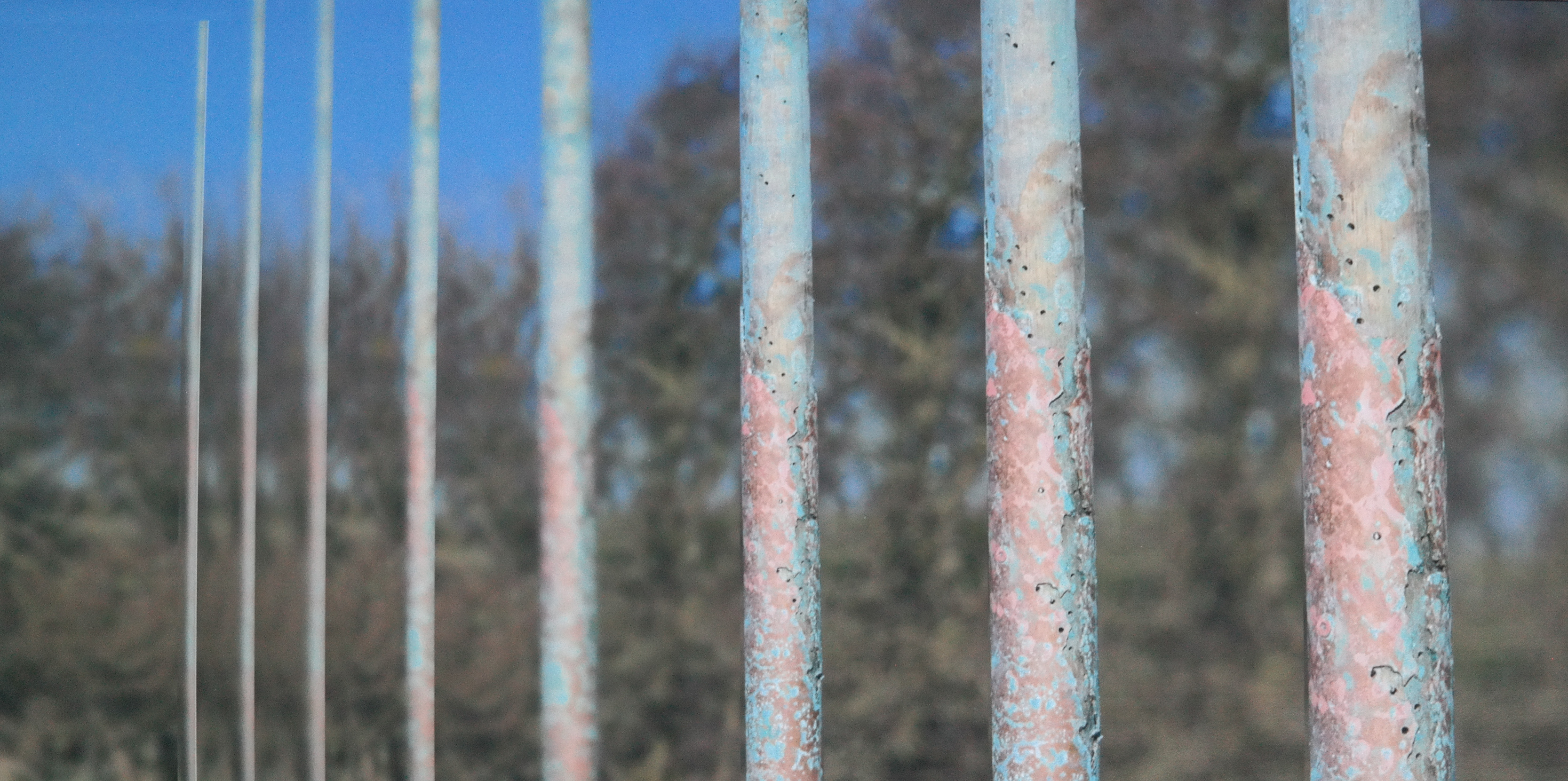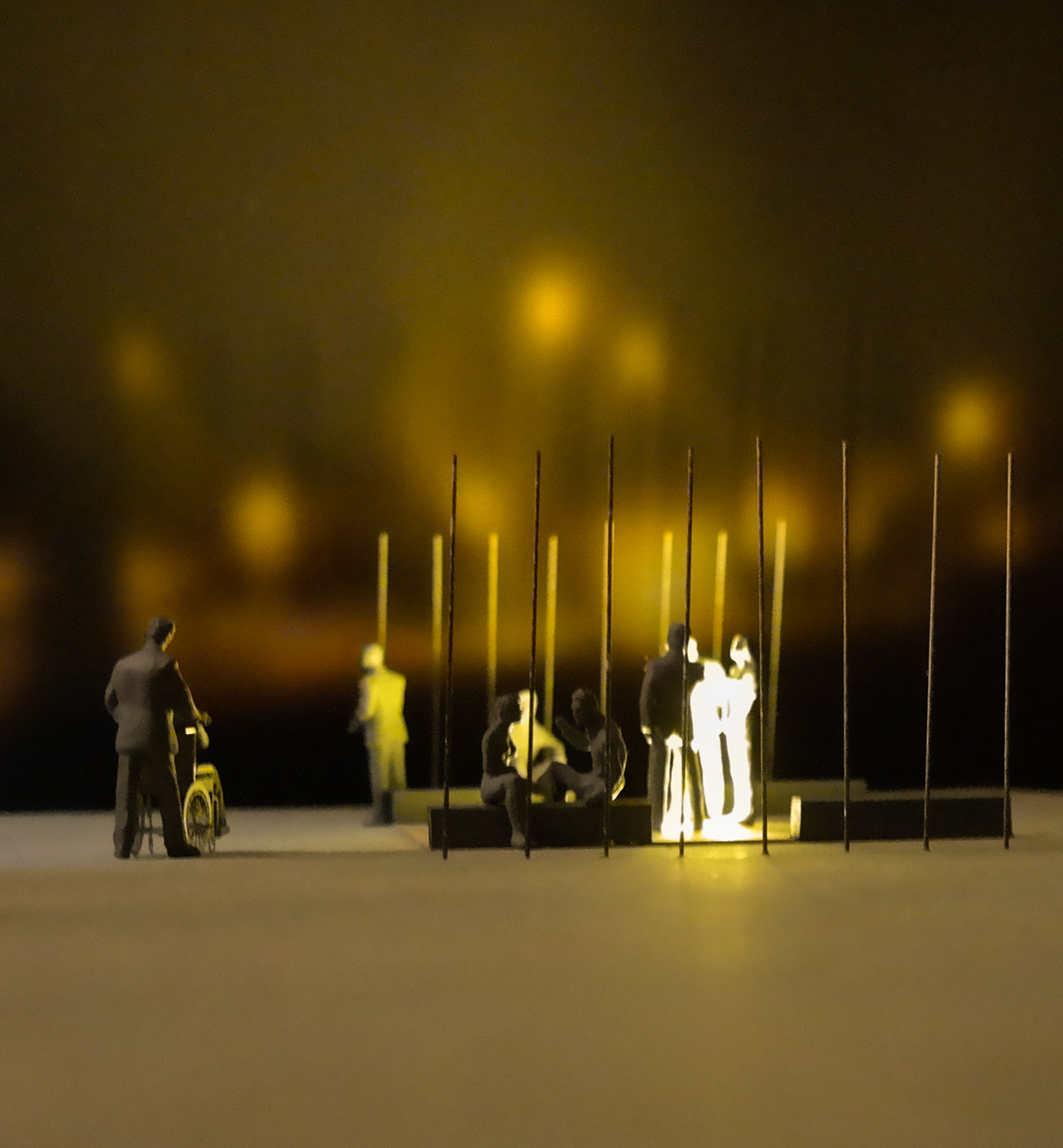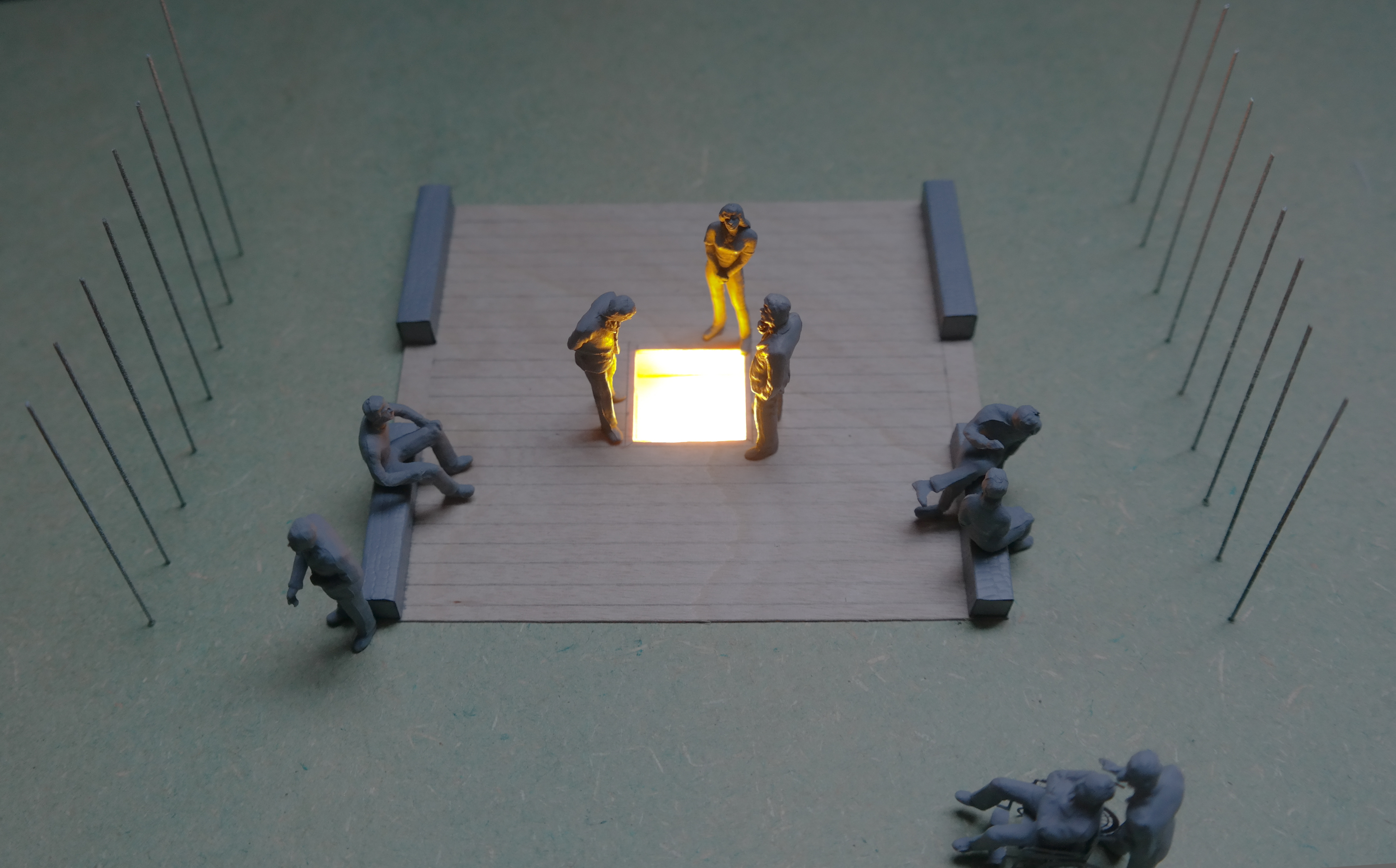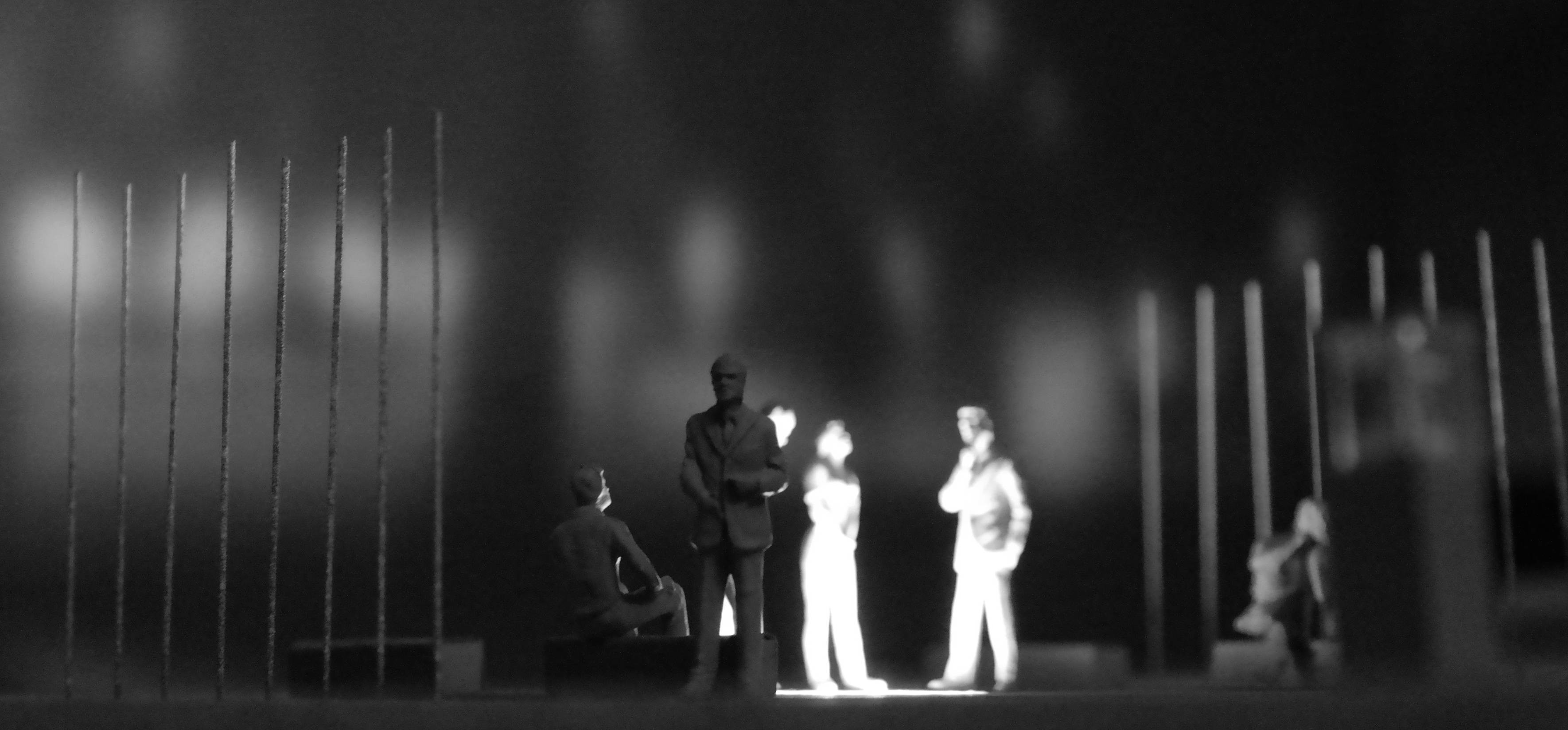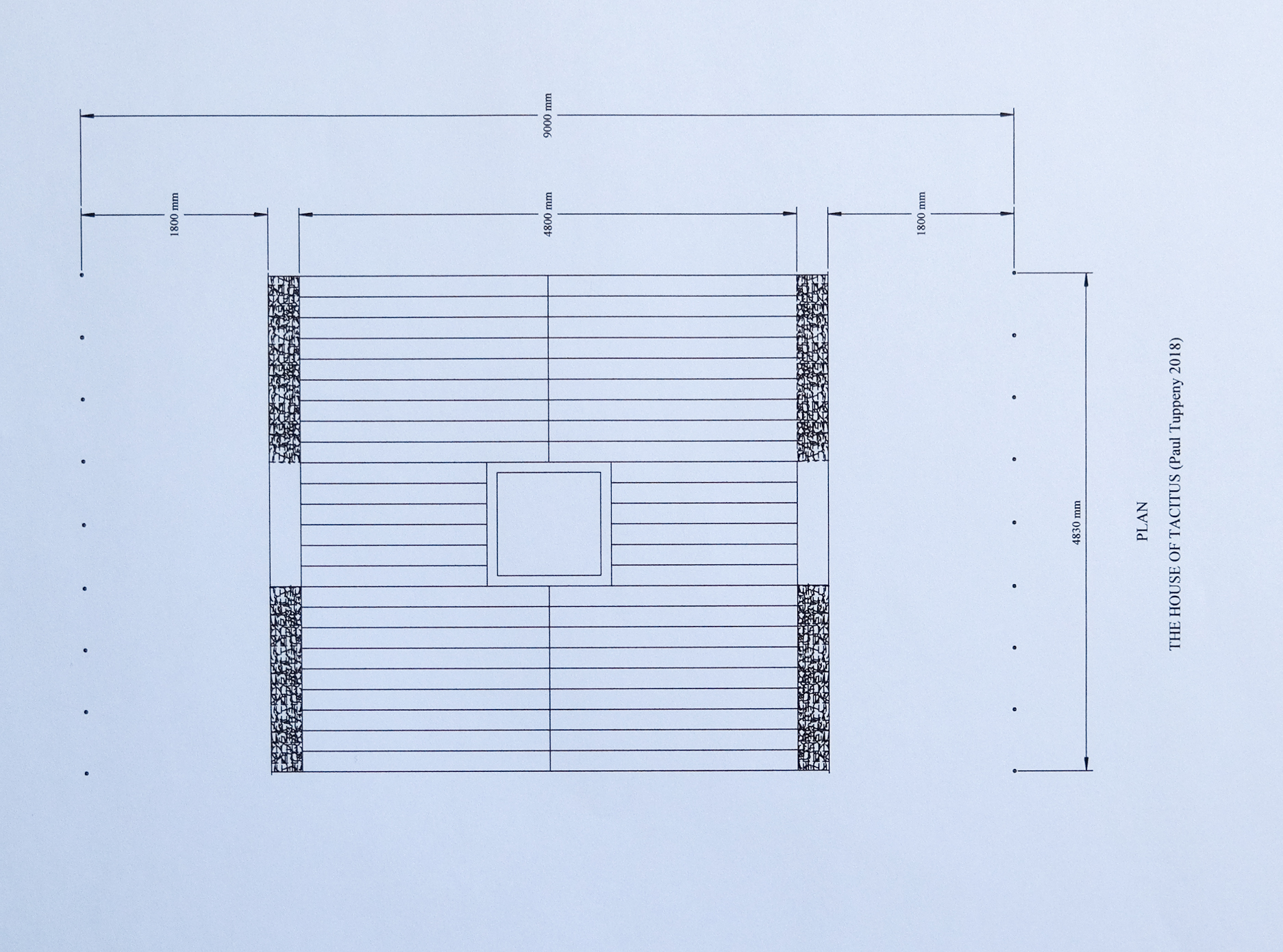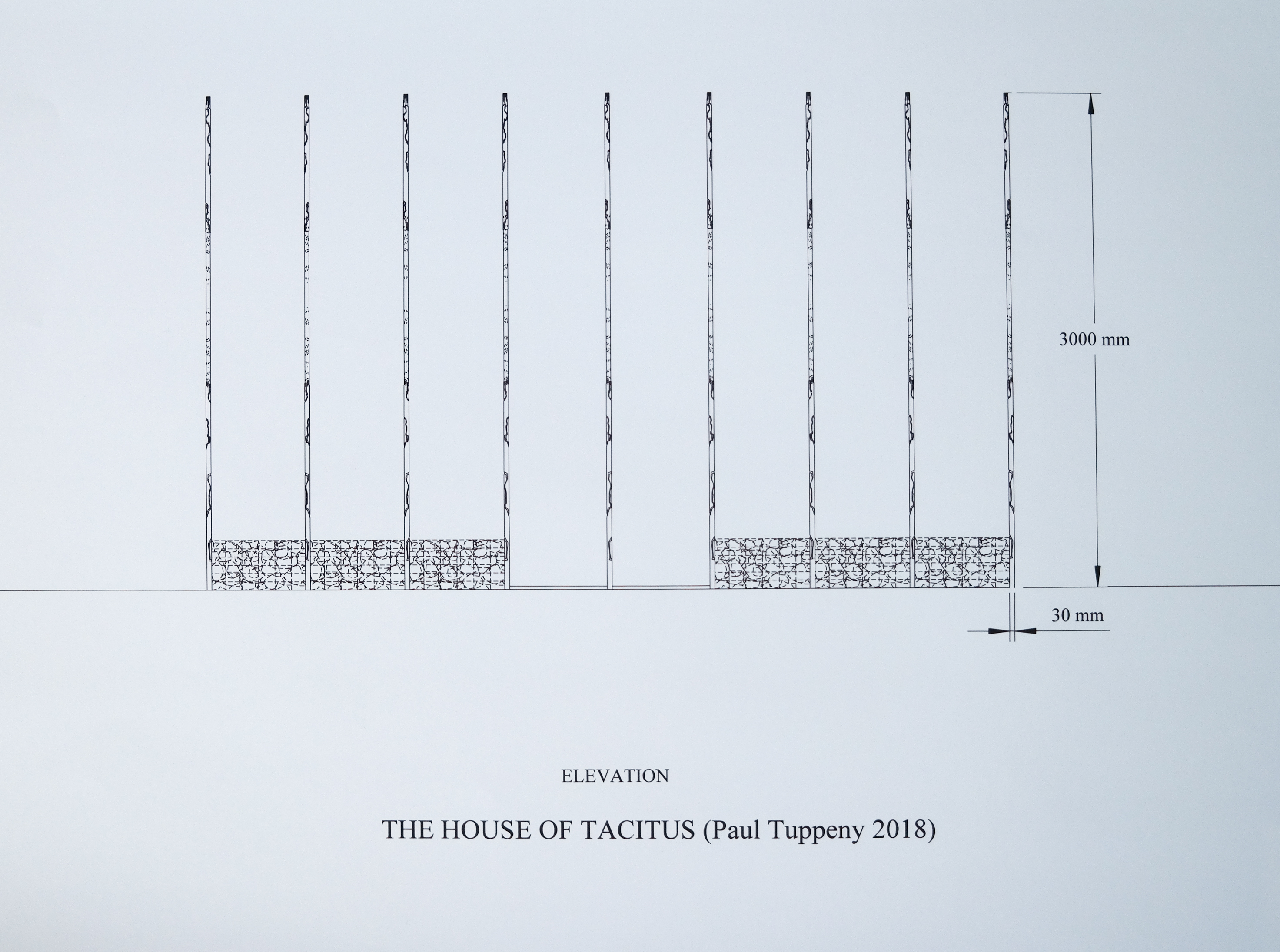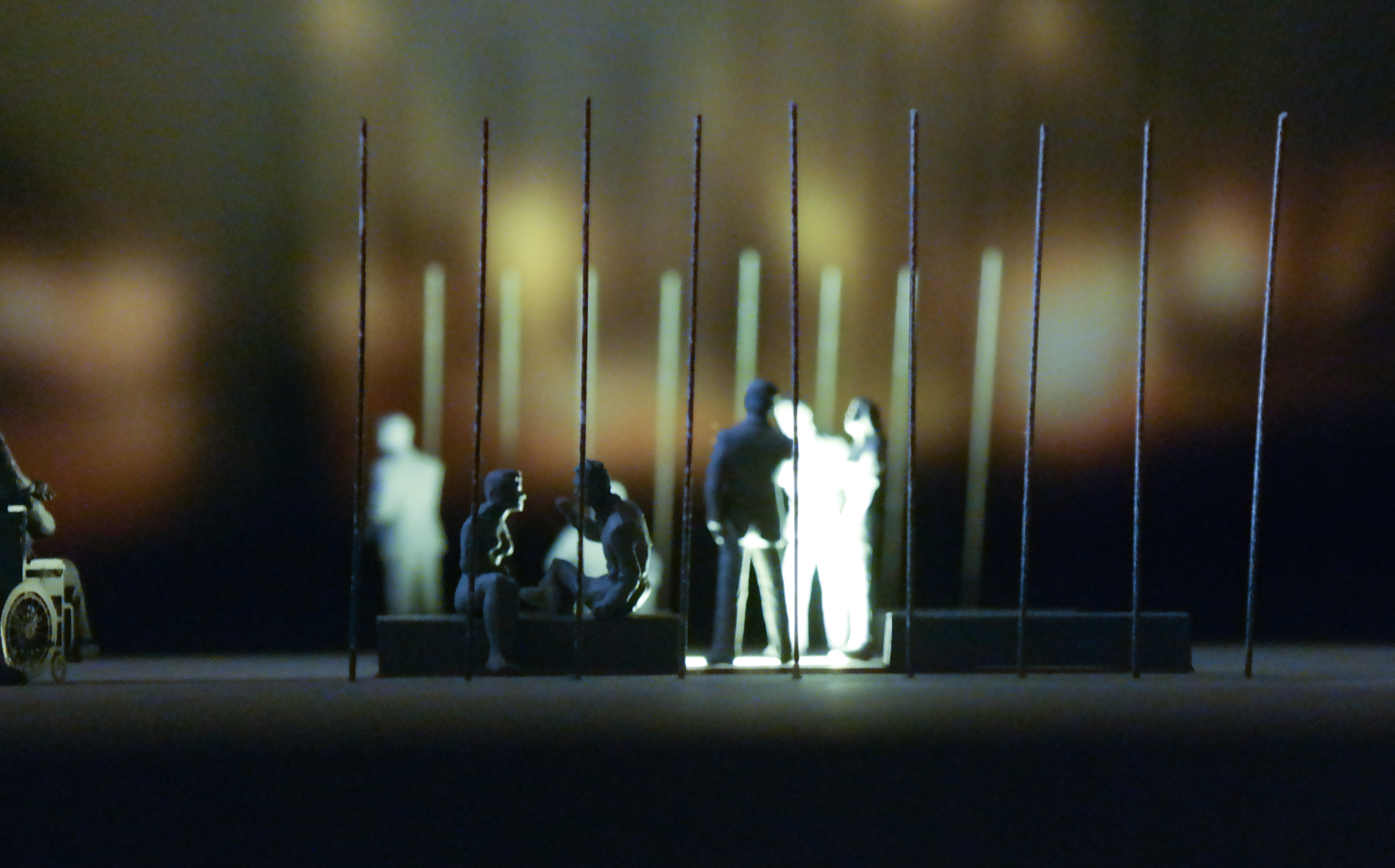THE HOUSE OF TACITUS : PROPOSAL FOR ART NIGHT 2018
“Little by little there was a slide toward the allurements of degeneracy: the lounge, the bath and the smart dinner party. In their naivety, the Britons called it civilisation, when it was really all part of their servitude.” (Tacitus, The Agricola, circa AD 97)
Gaius Cornelius Tacitus, a Roman Senator and historian, made his observation at the end of the 1st Century AD whilst recounting the adoption by native Britons of Roman comforts as things settled down following the suppression of the Boudiccan Revolt.
The proposed sculpture installation asks visitors to reflect on the words of Tacitus in the context of our current civilisation.
Visitors are invited into a domestically scaled boarded court, drawn by an illuminated glazed pit (or ‘impluvium’) which lies at its centre. There are bench seats (flint filled gabions) at the edges of the court and beyond these stand two lines of slender bronze posts which appear as both columns and prison bars. The bronze posts carry on their surface signifiers of decay, split bark and the flight holes of wood boring insects, recalling traditional myths locating the origin of classical architectural form in simple wooden structures.
Whilst inside the enclosure, visitors become part of the work, observed from outside through the bronze bars that surround them.
The background to the work and the text of Tacitus will be provided by signage, through weblinks to illuminated qr codes adjacent to the structure, and through printed leaflets that will be distributed by hand during the course of the event.
For several years my art has developed around temporal themes drawn from an interest in museums and memorials, and the way that we present our species to ourselves through the display of material culture; the social motivations that underlie this behaviour seem to address an innate identity of self that transcends the individual and the now.
Whilst the empire of Rome may have been replaced by global capitalism, this 2000 year old text still seems to resonate with contemporary questions concerning our notions of home, its comforts, and the price at which they may come.

